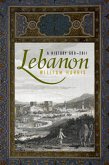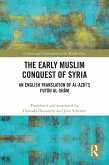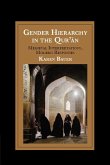Assuming a central place in Muslim life, the Qur'an speaks of one community of the faith, the umma. This unity of the faithful is recognised as the default aspiration of the believer, and in the modern era, intellectuals and political leaders have often vied both to define, and to lead it. Based on case studies of actors such as Saudi Arabia, Iran, and ISIS, James Piscatori and Amin Saikal consider how some appeals to pan-Islam prove useful, yet other attempts at cross-border institutionalisation including the Sunni Caliphate or the modern Shi'i-inspired Islamic Revolution, founder on political self-interest and sectarian affiliations. Accompanied by a range of scriptural references to examine different interpretations of the umma, Piscatori and Saikal explore why, despite it meaning such widely different things, and its failure to be realised as a concrete project, neither the umma's popular symbolic appeal nor its influence on a politics of identity has diminished.
Dieser Download kann aus rechtlichen Gründen nur mit Rechnungsadresse in A, B, BG, CY, CZ, D, DK, EW, E, FIN, F, GR, HR, H, IRL, I, LT, L, LR, M, NL, PL, P, R, S, SLO, SK ausgeliefert werden.
Hinweis: Dieser Artikel kann nur an eine deutsche Lieferadresse ausgeliefert werden.









